3 semester hours
Tuesdays and Thursdays 9:25 a.m. – 10:40 p.m. in Doolan 219
Instructor: Ray Toal, Doolan 110, rtoal@lmu.edu, +1 310.338.2773
Learning Outcomes

This course will examine the nature of the universe (whatever that may mean). Specifically, we will discuss how we humans are able to perceive, model, study, and discover explanations of everything and of nothing, mostly through the application of the scientific method. We will look into what science is, why it works, and something known as the philosophy of science. In addition, as our understanding of the universe depends on understanding understanding, we will look into what we have learned about ourselves, our minds and brains, intelligence, consciousness, and self-awareness.
By the end of the course, students will be able to reason about and explain the principal concepts in the following seven areas:
- The discovery of things: Science and the philosophy of science.
- Everything: Physics, cosmology, and (the quest for) Theories of Everything.
- Nothing: Can something come from nothing, and what are quantum fields anyway?
- Reality of things: What is real and what isn't real?
- Conceptions of things: Mind, brain, and behavior.
- Representations of things: Mental models of things, language, logic, data structures, nonlinear mathematics and the importance of chaos.
- Meta things: Consciousness, purpose, and free will.
Students will also exhibit a deeper working knowledge of at least one of the seven areas (to be demonstrated via a self-produced video or TED-style talk). Finally, students will gain an appreciation for the ways in which newer fields such as computer science and neuroscience add to the ongoing contributions of the classic sciences and psychology toward a better understanding of the cosmos and ourselves, and be able to formulate their own theories of consciousness, the mind-body problem, reality, artificial intelligence, and the likelihood of creating sentient devices.
Prerequisites
Honors standing • Willingness to try your hand at writing computer programs and making videos or giving talks • Willingness to participate in class, even though we meet at 9:25 in the morning • Skepticism
Readings
You will read the following four works (they average about $10 each):
- Samir Okasha, Philosophy of Science: A Very Short Introduction, Oxford University Press, 2002.
- Frank Close, Nothing: A Very Short Introduction, Oxford University Press, 2009.
- Graham Priest, Logic: A Very Short Introduction, Oxford University Press, 2000.
- Marvin Minsky, The Society of Mind, Simon and Schuster, 1988.
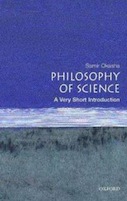
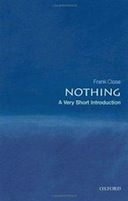
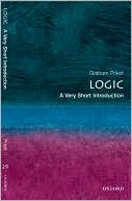
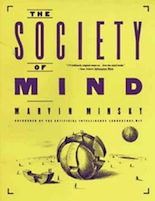
I'll be getting some lecture material from the following works; you don't need to read them for the course, but you might like to:
- Jan Westerhoff, Reality: A Very Short Introduction, Oxford University Press, 2012.
- Susan Blackmore, Consciousness: A Very Short Introduction, Oxford University Press, 2005.
- Neil deGrasse Tyson and Donald Goldsmith, Origins, Norton, 2005.
- Robert B. Laughlin A Different Universe: Reinventing Physics from the Bottom Down, Basic Books, 2006.
- H.-O. Peitgen, J. Jürgens, and D. Saupe, Chaos and Fractals: New Frontiers of Science, 2nd Edition, Springer, 2004.
The following books are nice to have, but not at all required. You might like to pick up one or more of them for sources for your projects.
- Anything by Brian Greene or Stephen Hawking, then anything by Robert Laughlin or Stuart Kauffman.
- Any book by Steven Pinker.
- Eric Baum, What is Thought?, MIT Press, 2004.
- Jerome A. Feldman, From Molecule to Metaphor: A Neural Theory of Language, Bradford Books, 2006.
- Douglas Hofstadter, Gödel, Escher, Bach: An Eternal Golden Braid, 20th Anniversary Edition, Basic Books, 1999.
- Douglas Hofstadter and Daniel Dennett, The Mind's I: Fantasies and Reflections on Self and Soul, Bantam, 1985.
- Harry Gensler, Introduction to Logic, Routledge, 2001.
- P.D. Magnus, forallx: An Introduction to Formal Logic.
- Ralph Grishman, Computational Linguistics: An Introduction, Cambridge University Press, 1986.
- Douglas R. Hofstadter, I am a Strange Loop, Basic Books, 2007.
- Daniel C. Dennett, Consciousness Explained, Back Bay, 1992.
- Raymond M. Smullyan, Satan, Cantor, and Infinity, Dover, 2009.
In addition, students will be assigned a number of classic and influential articles and essays from philosophy, logic, linguistics, and computation theory, as well as a few video lectures and feature films. A partial list follows:
- Michio Kaku: The Universe in a Nutshell
- David Chalmers on Emergence
- TED Talks, including, but not limited to: Kevin Kelly, Dan Dennett, Jeff Hawkins, Vilayanur Ramachandran, Christopher deCharms, Ron Eglash, David Deutsch, David Hanson, Michael Shermer, etc. etc. etc.
- A handful of video clips from big think.
- Peter Denning's Great Principles of Computing
- Jeanette Wing's Computational Thinking
- Harry Foundalis' Fundamental Principles of Cognition
- Victim of the Brain (Film)
- Daniel Dennett's Free Will Lecture at Edinburgh University
- Three lectures from the UCLA Convergence of Logic, Mathematics and Computer Science Symposium, April 2009
Various papers and readings will be assigned throughout the course (including my own course notes, practice problems, and sample code). These readings will be posted on individual assignment pages. If you have projects or papers to work on, you’ll have to find some additional readings on your own. Make sure you take the time for effective self-study. Take advantage of classmates and friends; the computing industry is one of the most collaborative fields in which to work, and your course experience should reflect this.
Workload
In accordance with the LMU Credit Hour Policy, this 3-unit course will require 9 hours of work per week (including the time spent in lecture and lab).
Assignments and Grading
As is typical of honors courses, you will be expected to (1) participate and (2) produce original work. You will also be required to read articles and watch videos, and submit graded problem sets which will give you the chance to prove that you have indeed "learned" some course content.
Your participation score will be assigned based on the value your comments add to class discussions. Your original works will be three: (1) a short essay or book review on material related to the course content — approximately 3 pages, (2) a paper on a topic that interests you (related to the course), approximately 8 pages, and (3) either a 10-minute TED-style talk, or video you create on your own. If you don’t know what a TED Talk is, go over to ted.com and watch about 50 of them.
Your final grade will be weighted as follows:
Letter grades are figured according to the usual scale: 90% or more of the total points guarantees you an A, 80% a B, 70% a C, and so on. Note the word guarantee: 82 points will earn you at least a B-; you might still get an A if 82 is or is near the top score. The lower bounds ensure grades measure your achievement of the learning outcomes, and can never punish you because you did very well but on the low end of a class full of high-achievers.
Student Rights and Responsibilities
You have the right to:
- A syllabus with stated learning outcomes
- Have those learning outcomes addressed
- Chats with the instructor during office hours
- Have questions answered via email (one-day turnaround max)
- Video and text chats with the instructor
- Feedback on your work
- A challenging experience (you should be working a little outside your comfort zone)
- All lecture sessions recorded and stored online for you to access
- An experience beyond what you would get from books, websites, online tutorials, and discussion forums
- Feel like you belong (if you are experiencing impostor syndrome or stereotype threat, please see the instructor)
- Leave the course better skilled than when you came in
In return, you are expected to:
- Use the lab resources, TA time, and instructor time when you need them
- Stay on top of all course announcements, both on BrightSpace and Slack
- Watch the course recording if you miss class
- Perform work conscientiously, neatly, and in a timely manner
- Be considerate and respectful to your fellow students
- Be honest with yourself and others
- Finish the course or withdraw by the withdrawal deadline
For online courses, I recommend your camera be turned on unless you have bandwidth problems or need to step away.
Two Tips for Success
You've probably seen hundreds of these, but there are two that stand out.
First, be aware of how many students trick themselves in to thinking they’re learning. Cramming and rereading do not move information from your working memory into long-term memory. Short-term working memory is not “learned.” Recall is the most effective. Please work through Nicky Case’s interactive essay How to remember everything forever-ish. (Also, this article backs up the importance of recall.)
Second, use checklists, as these are incredibly effective. Read Atul Gawande’s The Checklist and think about how you apply these to your studies.
Topics
The actual topic list may fluctuate, but we will be sure to cover the following major topics.
- INTRODUCTION: Themes for the course; Science; The three pillars of scientific inquiry: theory, experimentation, and computation; Principles of computation.
- THE COSMOS AND ORIGIN THEORIES: Kaku's The Universe in a Nutshell; Some basic physics, both classical (Netownian) and modern (quantum mechanics, relativity); Cosmology; Greene's Fabric of the Cosmos; Origin theories, possible futures of the universe, universe or multiverse?
- PHILOSOPHY OF SCIENCE: Reasoning and explanation in science; Scientific revolution or just evolution? Philosophical problems in the sciences; Science and anti-science.
- NOTHING: Early philosophical and scientific views on nothingness; Discovery of the vacuum; Emptiness; Can science answer the question 'Why is there something instead of nothing?'; Higgs fields.
- EMERGENCE: Examples of emergence; Weak and strong emergence; Tension between reductionism and emergence; Can emergence be explained reductionistically?
- CHAOS, FRACTALS, AND RECURSION: Definition of chaos; non-linearity; Recursion in music and art; Classical natural language representations; Syntax; Feynman diagrams; Fractals, including L-Systems, Biomorphs, and Iterated function systems; Fractal vs. Classic Geometry; Recursion in programming.
- SELF-REFERENCE AND SELF-REPRESENTATION: Implicit and explicit self-reference; Quine programs; Hofstadter's Typogenetics; DNA self-replication and the central dogma of molecular biology; Morphogenesis; Self-assembly.
- SYNTAX AND SEMANTICS: Syntactic descriptions of programming languges and natural languages; Programming language semantics; Genotypes and Phenotypes; Media and media players; Triggers; DNA; Message context; Layers of messages; Is meaning intrinsic?
- OVERVIEW OF LOGIC: Inference; Validity; Qualifiers; Descriptors; Self-reference; Modalities: necessity, possibility, time, obligation, knowledge, belief; Identity; Vagueness; Probability; Decision theory.
- SYSTEMS OF MATHEMATICAL LOGIC: Propositional Calculus; Predicate Calculus; Lambda Calculus; Set Theory; Number Theory.
- METALOGIC: Figure and ground, with examples from art, music, and mathematics; Recursive vs. recursively enumerable sets; Consistency, soundness, completeness, and decidability; Unprovable truths and uncomputable functions.
- BRAINS, MINDS, AND COMPUTERS: Hierarchical organization and levels of description; Brains as hardware; Thoughts, concepts, and neural activity (hardware support for thought); The Society of Mind: Wholes and parts, the self, introspection, goals, memory, emotion, reasoning, context, frames, and mental models; The mind-body problem; The computational theory of mind.
- ARTIFICIAL INTELLIGENCE: Informal systems and intuition; Knowledge representation; Church's and Tarski's Theorems; The Turing Test; History of AI; Checkers, Chess, NLP, Music composition, Theorem proving, Search, Knowledge representation, Frames, Conceptual Dependency, Agents, etc.; Cognition and thought; Concepts, analogies, creativity, emotions.
- BELIEFS, PATTERNS, AND UNCERTAINTY: How beliefs shape our views and understandings; Why people believe (strange) things; Patternicity; Doxastic Logic; Mathematical models of uncertainty.
- CONSCIOUSNESS, FREE WILL, AND PURPOSE: The problems of originality, creativity and free will; Inviolate levels; Self-reflection; Dualism; Consciousness as a phenomenon: how consciousness arises from inanimate matter; Can consciousness be programmed? Free will as an illusion or explicable by quantum uncertainty; Does the universe have a purpose? Do individuals have a purpose?
- REALITY: Dreams, stories, myths; Reality and mathematics; Reality of matter and energy; Reality of people and consciousness; Reality of time; Are we part of a simulation?
Additional Information
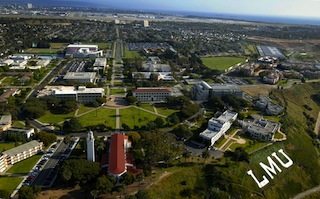
Tentative Nature of the Syllabus. If necessary, this syllabus and its contents are subject to revision; students are responsible for any changes or modifications announced or distributed in class or posted online.
Course Evaluation. Student feedback on this course provides valuable information for continued improvement. All students are expected to fairly and thoughtfully complete a course evaluation for this course. Course evaluations for the Seaver College of Science and Engineering are administered online through the Blue™ evaluation system. You will receive an e-mail notification at your Lion e-mail address when the evaluation form is available. You may also access the evaluation form on Brightspace during the evaluation period. A few minutes of class time will be reserved for you to complete a course evaluation near the end of the semester. Please bring a laptop, smart phone, tablet or other mobile device to class on this date so that you can access the online evaluation platform.
Academic Honesty. Loyola Marymount University is a community dedicated to academic excellence, student- centered education and the Jesuit and Marymount traditions. As such, the University expects all members of its community to act with honesty and integrity at all times, especially in their academic work. Academic honesty respects the intellectual and creative work of others, flows from dedication and pride in performing one’s own best work, and is essential if true learning is to take place. As an LMU Lion, you are pledged to join the discourse of the academy with honesty of voice and integrity of scholarship.
Academic dishonesty will be treated as an extremely serious matter with severe consequences that can range from receiving no credit for an assignment or test to failing the class, to expulsion. It is never permissible to turn in any work not been authored by you without properly acknowledging the source. It is your responsibility to make sure that your work meets the standard of academic honesty set forth in the “LMU Honor Code and Process” which appears in the LMU Bulletin.
Special Accommodations. Students with special needs who require reasonable modifications, special assistance, or accommodations in this course should promptly direct their request to the Disability Support Services (DSS) Office. Any student who currently has a documented disability (ADHD, Autism Spectrum Disorder, Learning, Physical, or Psychiatric) needing academic accommodations should contact the DSS Office in Daum Hall, as early in the semester as possible. All discussions will remain confidential. Please visit LMU DSS for additional information. Please request any needed assistance as early in the semester as possible.
Wellness. Please familiarize yourself with, and make use, of the resources at Lion Wellness as needed.
Reporting Requirements of Sexual or Interpersonal Misconduct. As responsible employees, faculty are required to report any case of suspected sexual or interpersonal misconduct and cannot protect student confidentiality. For information about confidential counseling on campus and for general information about consensual relationships, sexual harassment, and sexual assault, please visit LMU Cares.
Emergency Preparedness. To report an emergency or suspicious activity, phone the LMU Department of Public Safety (x222 or 310-338-2893) or at the nearest emergency call box. In the event of an evacuation, follow the evacuation signage throughout the building to the designated safe refuge area where you will receive further instruction from Public Safety or a Building Captain. For more safety information and preparedness tips, visit LMU DPS.